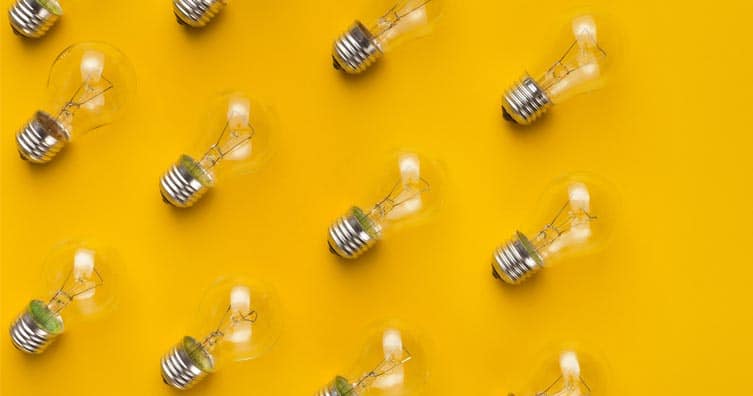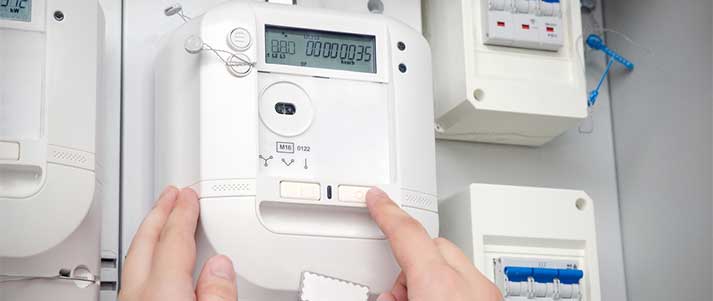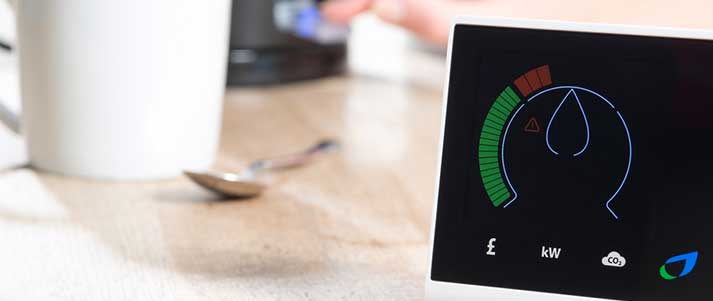Compare cheapest energy providers 2024
Let's be honest: you've got better things to do than spend hours setting up energy bills. With this guide, you can save yourself a lot of time, money and hassle.

Ironically, comparing and choosing the best gas and electricity provider and tariff can be energy-sapping. Do you go for fixed or variable prices? Dual or separate tariffs? What about exit fees?
Fortunately, once you've found the right deal, signing up for an energy supplier is actually very straightforward.
After reviewing the best energy providers, we'll share our eight practical tips on saving big money on gas and electric bills.
Energy market crisis 2024
The energy price cap limits how much energy companies can charge per unit of energy.
From 1st July to 30th September 2024, prices are capped at £1,568 per year for a typical household. This is based on the newly calculated typical household energy usage by Ofgem.
Crucially, the price cap only applies to standing charges and unit rates. How much you actually pay depends on how much gas and electricity you use.
For a while, nearly every energy company was charging this price cap. This means that you would be paying the same amount no matter what company you were with.
However, things are changing and some suppliers have started charging a fixed-rate tariff instead. While these can help with budgeting, as you'll know how much you'll pay per unit, energy prices are unpredictable at the moment. If prices drop, you could be stuck on a higher fixed-rate tariff with a high-cost exit fee.
That's why it's essential to do your research. Take a look at your usage and check out the energy suppliers below to see which one matches your needs best.
Also, check out our guide on how to save money on your energy bills and subscribe to our email list for updates on new energy deals.
Best energy suppliers 2024
Here are the best places to find cheap gas and electricity for your home:
-
Octopus Energy (renewable + £50 bonus)
Plus bag a free hot drink every week (Greggs/Caffe Nero)!
Sign up today using this special link.
Octopus Energy is quickly gaining loyal customers for providing 100% renewable electricity and being refreshingly transparent.
They offer both fixed and variable tariffs, and their transparent pricing is typically more competitive than the 'Big Six' energy suppliers for most households.
-
MoneySuperMarket
In the past, we have tried to rank and compare all the other main energy providers. But, ultimately, most energy deals depend on your specific circumstances and location.
So now we suggest using trusted comparison sites to find the cheapest energy supplier for your area.
MoneySuperMarket is a good site for comparing energy suppliers.
They are a well-established and comprehensive comparison website for comparing gas and electricity tariffs. The simple online process can be completed in minutes.
8 ways to save money on gas and electricity bills
To get the best energy deal and save money on bills, try these tips:
-
Don't pay for the previous tenants' energy
On the day you get your keys, take photos of all of the meter readings in the house and submit them to the current energy supplier. Make it clear that you've just moved in.
If you don't do this, there's a chance you'll receive a bill for the energy that was used before your tenancy started.
The next priority is to get quotes for other energy suppliers and, if possible, switch to a cheaper tariff.
-
Decide whether to get fixed gas and electricity prices
The majority of homes will be on a standard variable tariff. This essentially means that when wholesale energy prices go up, so do the bills.
However, choosing a fixed tariff locks you into a single price for a set period (typically a year or more).
This can potentially protect you from future price increases. However, there's also the potential for you to miss out on benefitting from drops in energy prices.
If you're considering a fixed tariff, do plenty of research to work out whether it's likely to be a good deal in the long run. Also, consider whether you'd need to pay exit fees for leaving the contract early.
Ultimately, signing up for a fixed tariff can work out as cost-effective in some circumstances, but it's a risk. As a general rule, we wouldn't recommend it. But if you've been offered what you think is a good deal, run the numbers for yourself and see if it works for you.
-
Choose a dual fuel tariff for gas and electricity
Not all properties have a gas connection. But, if yours does, it could be cheaper to combine your gas and electricity bills with a single supplier under a dual fuel tariff.
As well as being a good money-saving technique, another benefit is that you'll save time and hassle by having just one single bill to pay each month. And, if you have any issues with your gas and electricity, you'll only need to deal with one company rather than two.
-
Opt for paperless billing
Applying for an energy tariff with online-only billing (as opposed to paper billing) could save you a small amount of money each year. It also does wonders for keeping your hallway floor tidy...
All of your bills will appear on your online account, where you can also arrange for monthly payments to go out of your account automatically. Easy.
Have a look at our tips on how to split bills with your housemates.
-
Pay by Direct Debit
Paying your bills by Direct Debit could save you 5%+ with some suppliers.
It's worth noting that when you submit your final meter readings, there might be a difference between the amount of energy used and what you actually paid for. In this case, you'll either have to pay more (debit) or ask for the difference to be refunded (credit).
It's possible to either have fixed Direct Debit payments (where you pay the same amount each month), or variable (where each payment differs based on the monthly usage).
If you pay fixed amounts each month, you might notice you're overpaying in summer and underpaying in winter. But it should even itself out across the year.
As the payments are automatic, Direct Debit makes it much easier to keep paying your bills, even when you're not in your uni house. So, if you're lucky enough to be going away on holiday, bills will be the last thing on your mind.
-
Check your energy meters
The chances are your chosen energy supplier will automatically use the previous tenants' usage to estimate how much your own monthly payments will be.
Reduce the risk of paying too much or too little during your contract by submitting your meter readings every three months or so.
Just imagine if you were underpaying by £30 a month. At the end of a 12-month contract, that's a horrific £360 bill to unexpectedly have on your plate. We explain how to take meter readings below.
By the end of 2025, the government plans for at least 74.5% of homes to have smart meters. These automatically send meter readings to your energy supplier, and you can keep track of how much energy you're using through an In-Home Display.
Installation is free. Just contact your energy supplier for more information on how to get one now.
-
Consider paying rent with bills included
If you can find accommodation where the rent includes basic bills (i.e. gas, electricity, water and internet) then you might be able to get a good deal... as long as the rent's reasonable, of course.
One perk to this option is that you don't have to worry about splitting your bills or relying on one housemate to deal with all of the utilities. However, the drawback is that you won't have the credit-building benefits that come with being a good bill payer.
And although it saves you the hassle of organising bills, it might not be the cheapest option.
Your landlord could overestimate how much energy you'll use (they don't want to lose money after all), so you might end up paying more than you need to.
It's also possible that your landlord can charge you extra if you use too much energy. Make sure you check your contract and weigh up the pros and cons before you commit.
How to take meter readings
Unsure how to take a meter reading? Here are the key things to know:
Electricity meters

Credit: Proxima Studio – Shutterstock
If you have a smart meter, you don't need to worry about readings as your electricity usage will automatically be sent to your provider (more info on this below). But, if you have any of these three types of meters, you'll need to take readings: digital, electronic and dial meters.
Digital electricity meter
Digital meters are essentially just a line of numbers that you read from left to right.
Some numbers might be red (or surrounded in red) – ignore these.
Electronic electricity meter
Electronic meters work in pretty much the same way as digital ones, except the numbers are displayed slightly differently and you might have to press a button to make them appear.
Again, read them from left to right and ignore those surrounded by red.
Dial electricity meter
If you have an electric dial meter, you'll see a number of dials in a row. Each of these dials runs from zero to nine, with each dial turning in the opposite direction to the one before.
Read them from left to right, noting down the number the pointer is directed towards.
If the pointer lies between two numbers, choose the lowest number. If it lies between nine and zero, note down nine and deduct a number from the dial to the left.
Ignore the very last dial on the right.
Gas meters
Remember, not all houses have a gas supply, so you might not need to worry about a gas meter at all. If you do have one, it will either be a dial or a digital meter.
Dial gas meter
Just like with dial electricity meters, there will be a series of dials running from one to nine. You have to read these from left to right.
Again, if the pointer falls between two numbers, choose the lowest one. And if it falls between nine and zero, write down nine.
Ignore any red dials, any dials marked as 100 per rev, and the largest dial.
Digital gas meters
Read the numbers from left to right, ignoring any that are in red or after the decimal point.
What are smart meters?

Credit: photographyfirm – Shutterstock
Smart meters are much easier to read than normal meters and make consumers more aware of how much energy they're using and how to reduce this.
Smart meters are installed by your energy supplier. They'll likely contact you to ask if you'd like one installed and can arrange a time for this to happen (at no extra cost to you).
The government plans for the majority of homes and small businesses to have smart meters by the end of 2025.
Here's a list of the main functions and benefits of smart meters:
- You can see how much energy you're using through an In-Home Display.
- The meter communicates your energy use directly to your supplier. There's no need to send them your meter readings.
- You see real-time energy usage, displayed in pounds and pence.
- They bring an end to estimated billing. You're only ever billed for the energy you actually use.
- They make the process of switching suppliers much quicker and easier.
- You won't be charged to have a smart meter or in-home display installed.
They work in both prepayment and credit modes.
If you do opt for prepayment mode, you'll have more flexibility on how you top up (you won't have to head to the local shop). You'll also be able to view your balance on the In-Home Display and can get alerts when you need to top up.
There's no legal obligation to have a smart meter installed. But, if you get offered one, they can help you save money on your energy bills by giving you a good idea of how much energy you're using.
And, if you cut down on your energy usage, this has the added benefit of reducing your carbon footprint.
When moving into a new place, look at the top ways to save on your internet as well as electricity and gas. Here are the best student broadband deals of 2024.










